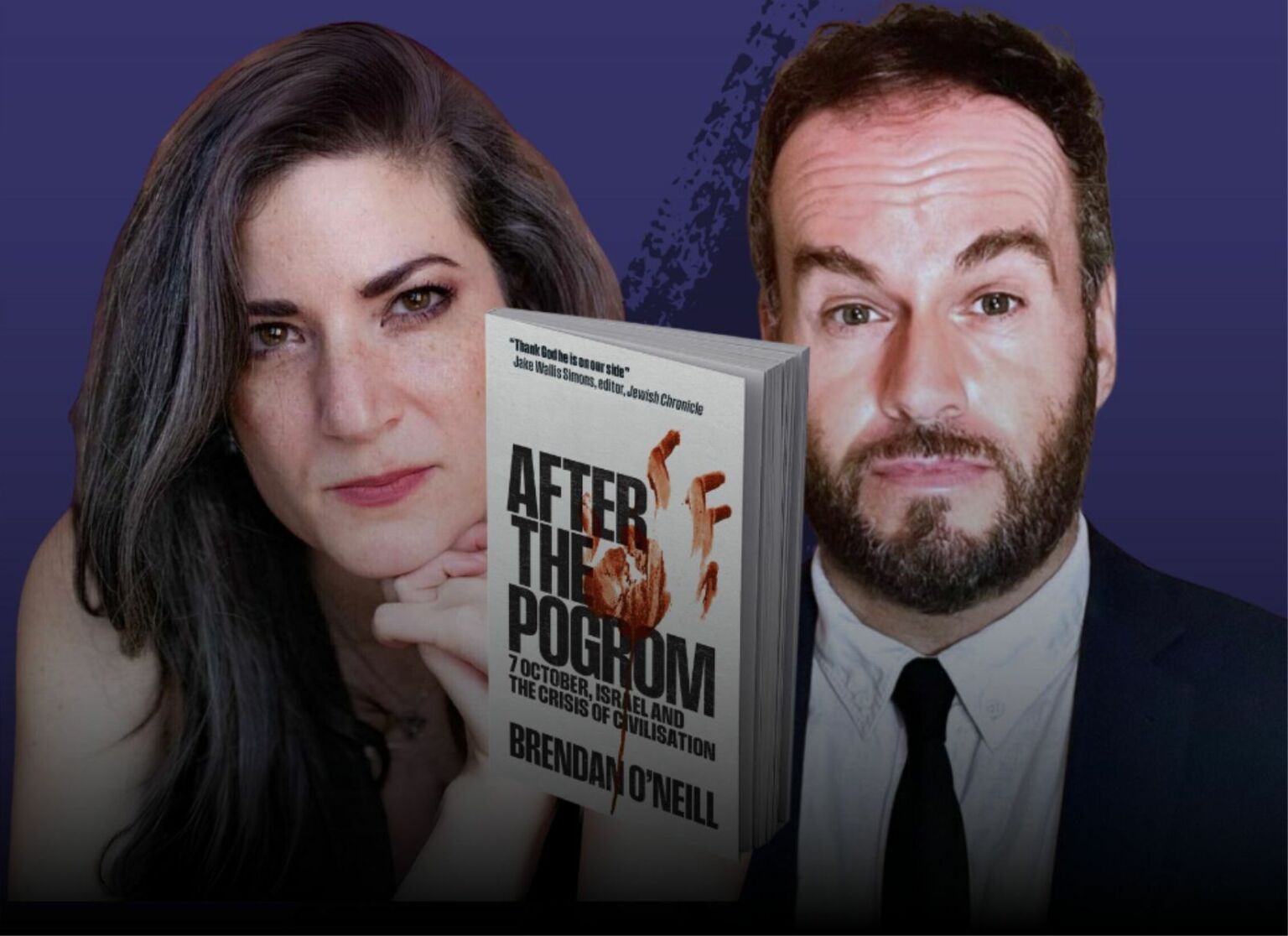This rapist is a man – so why can’t the BBC say so?
The Beeb gives more weight to the delusions of convicted sex offenders than to observable facts.

Want to read spiked ad-free? Become a spiked supporter.
Another rapist from the ‘most marginalised’ community has struck again. On Friday, a BBC headline informed readers of a ‘Trans woman sentenced to six years for rape’. The offender mugshot accompanying the story was of Alex ‘Lexi’ Secker, a man with a beard so fulsome as to make an Iranian mullah explode with envy. Here was the UK’s national broadcaster, surely the world’s most trusted media outlet, misleading the public to spare the feelings of a dangerous criminal.
When the BBC first reported on the case in June, Secker was referred to as ‘she’. After criticism on social media by journalist Sonia Sodha, barrister Allison Bailey and pressure group SEEN in Journalism, this has quietly been changed to ‘they’ in subsequent reporting. But Secker is a man, not a ‘they’. Indeed, he is a dangerous man who raped a woman. The muddy compromise of ‘they’ satisfies neither the unreasonable demands of the trans lobby nor the truth.
Thankfully, in court, the victim was not forced to refer to her rapist as if he were a woman. In her victim-impact statement, she said: ‘He took away my trust in people and myself. The assault consumed me with shame and fear.’
Nonetheless, the judge and the barristers persisted in colluding with the rapist’s fantasy of womanhood, calling the defendant ‘Ms Secker’ and ‘she’. When sentencing Judge Jason Taylor KC explained: ‘At the time of this offence, you were a man’ – as if the man standing in the dock had somehow ceased to be male. Thankfully, despite these bizarre concessions, Secker was sent to a male prison. It will be interesting to see how long his female gender identity lasts when he’s bunked up with hardened lags.
But to return to the coverage, despite the huge resources at its disposal, the BBC omitted another key fact, which had to be uncovered by the comparatively tiny online publication, Reduxx. Secker is a vocal trans activist. He has harassed high profile-gender critical campaigners online, advocated for the right of trans-identifying men to access women-only spaces, and blasted those opposed to puberty blockers as having ‘blood on their hands’.
As journalist Genevieve Gluck notes on Reduxx, Secker’s last post on Medium, which was entitled ‘Rosie Duffield is a transphobic bigot’, was made on 9 June, less than a month before he was convicted of rape. A short while later, Secker boasted of having written to his MP, Michelle Donelan, to oppose the legal clarification of sex in the Equality Act, a policy pledge of the Tories that was ditched as soon as Labour took office. It must be a comfort for Secker to know that the UK government listened to trans activists like him and so women-only spaces like rape crisis centres will not automatically have the right to exclude men.
The BBC seems unable to accept that there might be more to the trans issue than puff pieces promoting drag queens and middle-aged men in dodgy wigs crying about being misgendered. The bigger, darker and more profound story – that perverts with criminal intentions are dressing up as human-rights activists – gets no attention from the BBC. But it is worth asking who benefits when men are free to identify into women-only spaces? Who benefits from the argument that children can consent to medical interventions that affect the rest of their lives? Who benefits from arresting the physical development of children? The BBC’s refusal to even acknowledge, let alone ask, these inconvenient questions is starting to look a lot like deeply ingrained bias.
Secker is not an outlier. It is now known that nearly half of the men in prison who identify as trans have convictions for sex offences. Indeed, there are so many trans offenders that a specialist prison unit has been set up for them (as a whole, men make up 95 per cent of the prison population).
The duty of the BBC is not to report how people feel about themselves, it’s to report the truth. After all, Alex Secker not only identified as a ‘woman’ – he also identified as ‘not guilty’ and claimed the sex he had been charged for had been consensual. The BBC, quite rightly, did not take his word for it on that claim.
Trust is a precious commodity within journalism. When a journalist makes a mistake, as all do sometimes, all principled editors will ensure it is corrected quickly and openly. That the BBC is willing to squander something as fundamental as the trust of its audience, just to spare the feelings of rapists, speaks volumes.
Jo Bartosch is a journalist campaigning for the rights of women and girls.

After the Pogrom – book launch
Tuesday 1 October – 7pm to 8pm BST
Batya Ungar-Sargon interviews Brendan O’Neill about his new book. Free for spiked supporters.
Picture by: Wiltshire Police
Celebrate 25 years of spiked!
A media ecosystem dominated by a handful of billionaire owners, bad actors spreading disinformation online and the rich and powerful trying to stop us publishing stories. But we have you on our side. help to fund our journalism and those who choose All-access digital enjoy exclusive extras:
- Unlimited articles in our app and ad-free reading on all devices
- Exclusive newsletter and far fewer asks for support
- Full access to the Guardian Feast app
If you can, please support us on a monthly basis and make a big impact in support of open, independent journalism. Thank you.







Comments
Want to join the conversation?
Only spiked supporters and patrons, who donate regularly to us, can comment on our articles.